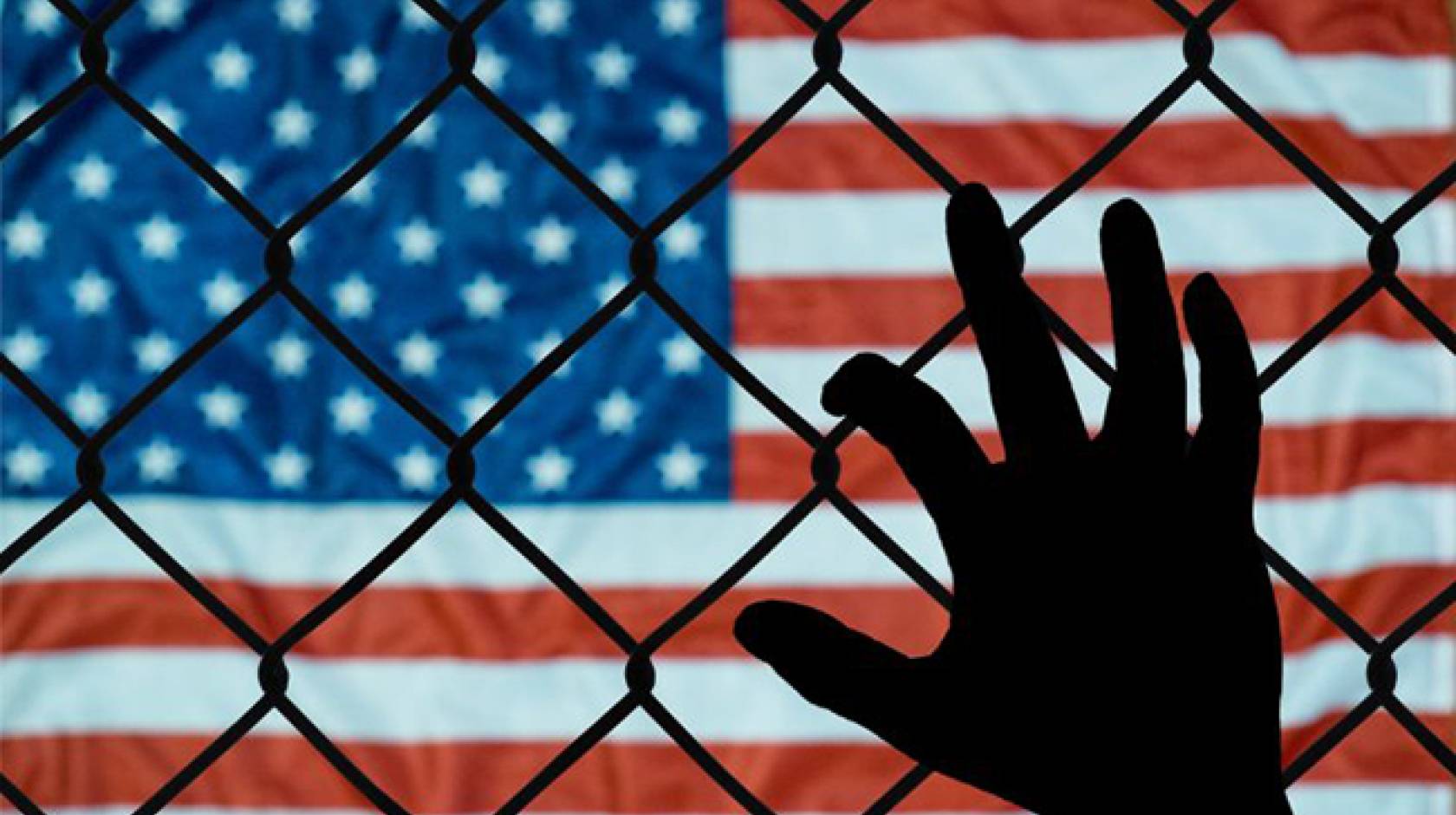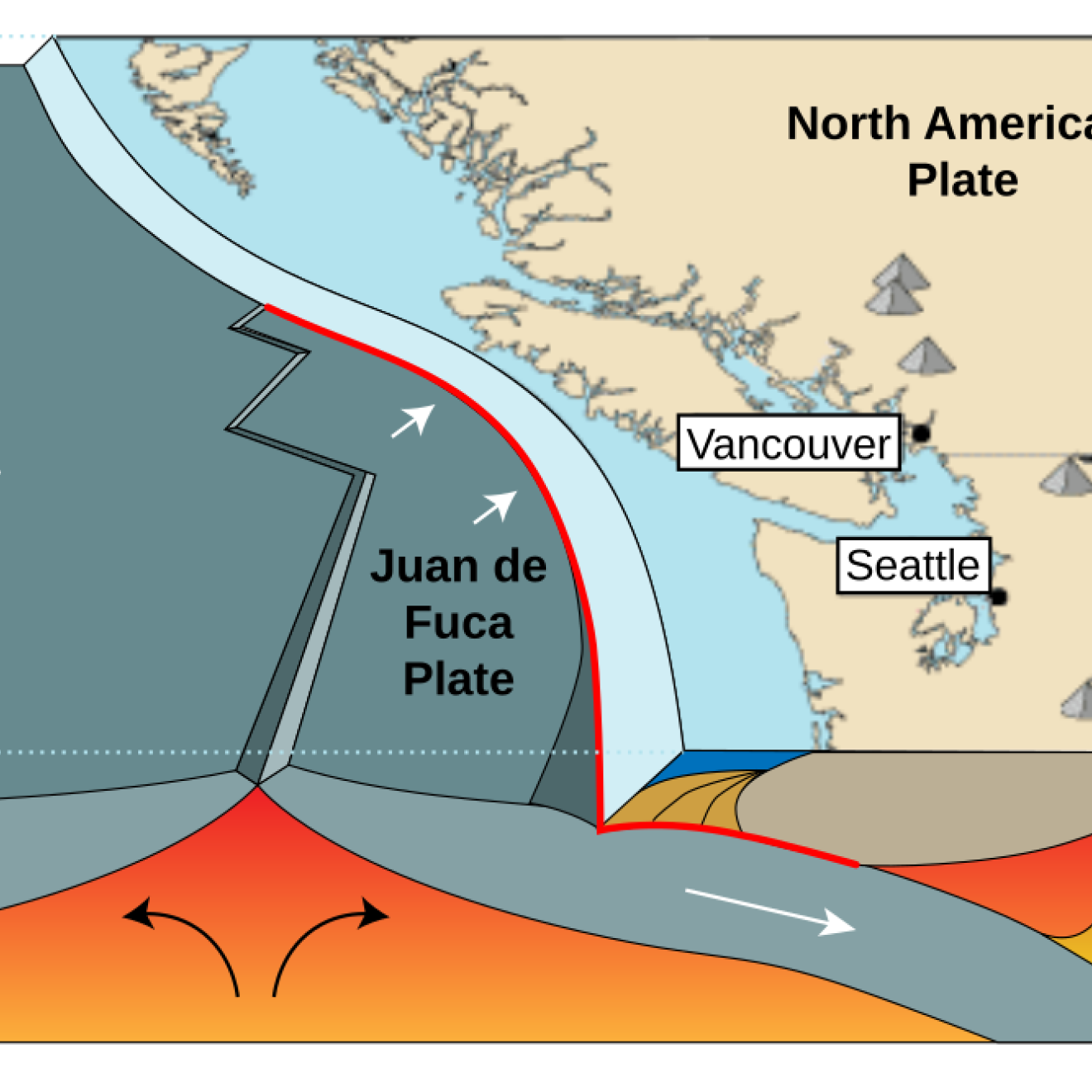Tess Eyrich, UC Riverside

Private prison stocks soared in the aftermath of President Donald Trump’s 2016 election. Given his tough stance on immigration as a candidate, it’s easy to understand why.
According to political scientist Loren Collingwood, Trump’s proclivity for anti-immigrant rhetoric served as a signal to investors that the U.S. detainee pool would increase substantially in the wake of his election. The need for more facilities to house those detainees would also increase proportionally, which is where private prison operators come into the picture.

In recent years, Collingwood explained, more and more private prison companies have turned to a new money-making scheme as overall crime rates have dropped nationwide. Their strategy involves partnering with U.S. Immigration and Customs Enforcement, or ICE, to detain immigrants in facilities across the country. Through lucrative government contracts, private prison operators have expanded their “carceral market” to potentially include millions of undocumented immigrants living in the U.S.
But as the scope of private imprisonment grows, is the industry’s influence on politics growing as well?
Private companies, public policy
The question motivated Collingwood, an assistant professor of political science at the University of California, Riverside, to look closely at legislative trends in districts that are home to privately owned or managed ICE detention facilities.
Along with Jason L. Morin, an assistant professor of political science at California State University, Northridge, and Stephen Omar El-Khatib, a doctoral student in the Department of Political Science at UC Riverside, Collingwood assessed support for proposed punitive immigration legislation among members of the 113th and 114th Congresses, which spanned from 2013-15 and 2015-17, respectively.
The researchers published their findings online last week in the journal Race and Social Problems. In an article titled “Expanding Carceral Markets: Detention Facilities, ICE Contracts, and the Financial Interests of Punitive Immigration Policy,” they reported the discovery of a significant link between the presence of an ICE-contracted private detention facility in a federal legislator’s district and that legislator’s co-sponsorship of punitive immigration bills.
“Legislators representing districts where privately contracted companies manage or own detention facilities are more likely to introduce anti-immigrant bills by a factor of three,” they added.
How they got there
Using data from the Congressional Bills Project, the researchers examined a total of 25 immigration-related bills introduced during the 113th and 114th Congresses.
They limited their focus to bills that “seemed likely to increase the need for detainee or undocumented immigrant housing” such as H.R. 2848, also known as the Visa Overstay Enforcement Act of 2015. Introduced by Rep. Lou Barletta (R-Pennsylvania), the bill would have made overstaying a visa a criminal offense rather than a civil offense and permitted offenders to be imprisoned for up to six months for a first offense and up to two years for subsequent ones.
Collingwood, Morin, and El-Khatib then mapped out the 206 detention centers that had contracted with ICE prior to the start of the 113th Congress in 2013, arranging the pool of privately owned and managed facilities by district. By pinpointing the districts represented by the congressional co-sponsors of each of their 25 selected bills as indicated by Voteview, the researchers found clear support for what they termed the “carceral representation hypothesis.”
“Legislators representing districts where private prison companies contract with ICE to manage or own detention facilities disproportionately co-sponsor punitive immigration legislation designed to increase immigrant detention via tough enforcement laws,” they explained, noting their results emphasize the influence of private prison companies on national-level politics.
‘A growth industry’
For now, at least, it’s an influence that appears poised to expand. The corporations that dominate the U.S. private prison market — including the industry’s two largest competitors, CoreCivic Inc. and the GEO Group Inc. — generate billions of dollars in revenue each year. And with the U.S. prison population continuing to swell after four decades of monumental growth, financial partnerships between government and for-profit entities show no signs of diminishing.
Despite evidence to the contrary, Collingwood, Morin, and El-Khatib explained that prison development is often considered an economic boon by both political elites and rural communities that have experienced declines in more traditional industries, such as manufacturing and agriculture.
“By facilitating a perception of economic dependence within legislative districts, private prison companies systematically influence other types of legislation to increase the supply of detainees,” the researchers said. “Our results confirm that private prison companies systemically expand their markets by targeting undocumented immigrants.”
Another seemingly attractive benefit of hosting such a facility? The artificial population boosts that come from doing so can increase the amount of government funding towns receive, thus heightening the appeal of private prisons among elected officials.
“The rise of private prison detention facilities over the last 20 years, in conjunction with a growing — if fabricated — immigration crisis, represents a growth industry in some geographic localities,” the researchers added. “Some of these facilities now underpin local economies.”

